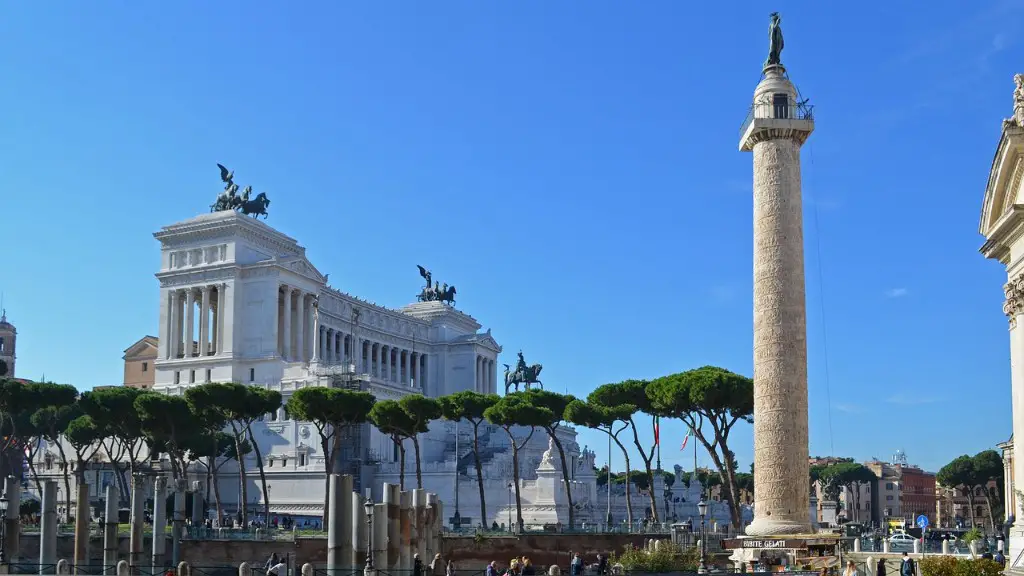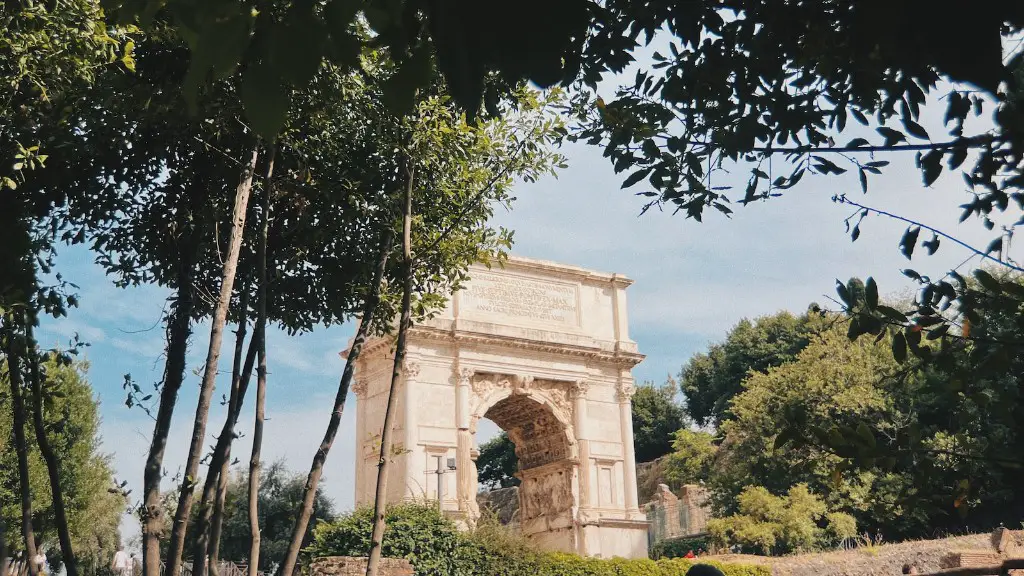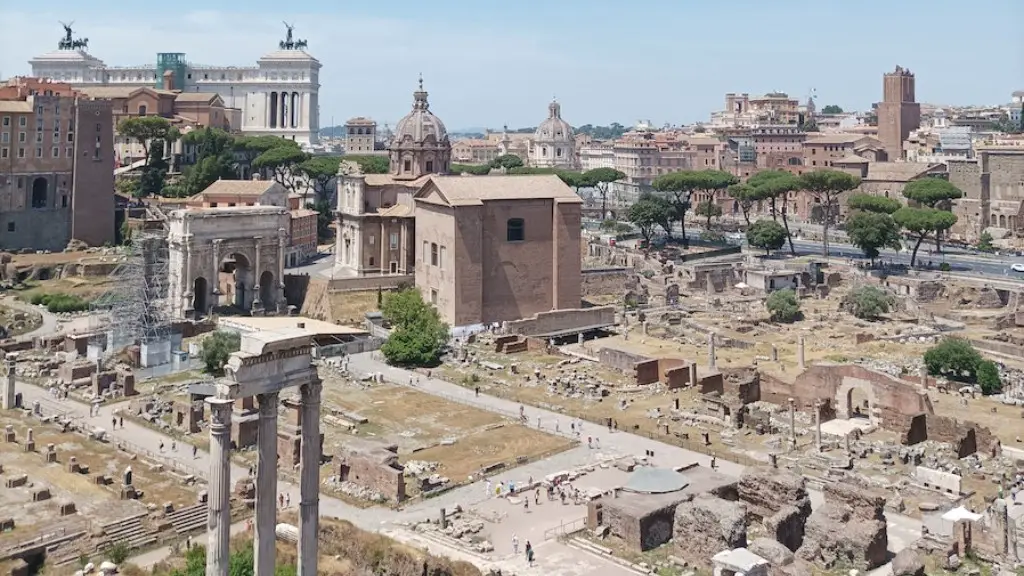Background and Beliefs
Paganism in ancient Rome was a belief system based on polytheism, with the worship of multiple gods and goddesses, including the Roman gods, the Greek gods and a variety of deities from local tribes. It was a closely-knit belief system, with a strong sense of community and a strong emphasis on ritual and practice. Ancient Romans believed in many different kinds of divine forces, and this belief was closely intertwined with all aspects of Roman life, including politics, religion, culture and art.
The core belief of Paganism in ancient Rome was that their gods and goddesses were real, and had a direct effect on the lives of those who worshipped them. Ancient Romans believed that their gods and goddesses possessed certain powers, and that they could influence their lives in various ways. These powers were derived from the gods’ attributes, such as knowledge, strength, or skill, and from the way their followers acted and responded to these attributes.
Rituals and Practices
Paganism in ancient Rome was based on rituals and practices such as prayer, animal sacrifice, and offerings of food and drink in honour of the gods. Animal sacrifice was an important part of religious practice in ancient Rome, and it was thought that the spirits of the sacrificed animals could be absorbed by the gods. Offerings of food and drink were also made to the gods, with some of the food and drink set aside as gifts for the gods themselves.
Rituals and practices also played an important role in the spiritual lives of ancient Romans. For example, many rituals and festivals such as the Saturnalia were held in celebration of various Roman gods and goddesses, and offer sacrifices and prayers. These religious ceremonies and festivals often had political significance, as well as being a way for worshippers to connect with the gods and goddesses.
Influence on Roman Life
Paganism had a strong and lasting influence on Roman life. Ancient Romans believed that their gods and goddesses had power over the natural world, and that if the gods and goddesses were pleased with them, then they could bring good luck and fortune. This belief had a strong influence on Roman culture, and impacted on many aspects of life, from political decisions to the building of temples, to personal hygiene and hygiene practices.
The influence of Paganism was also seen in the Roman legal system. Ancient Romans believed that the gods could be invoked to help solve disputes, and that sacrifices to the gods would ensure that justice was done. As such, the gods were invoked frequently in debates, most often in the form of oaths. It was believed that the gods could be the ultimate arbiters of justice and by swearing an oath, both parties agreed to abide by the decision of the gods.
Relationship with Christianity
Christianity eventually replaced Paganism as the main religion of Rome, with Christianity becoming increasingly accepted by the people and by the rulers of Rome. Christianity was seen as a safer and more stable religion for the Roman empire, with the belief that it was the one true religion. As such, pagan practices were discouraged and Christianity was promoted. Eventually, in the fourth century, Christianity became the official religion of Rome.
Despite the official support afforded to Christianity, Paganism remained a strong influence in Roman life. Although not officially recognized, Pagan beliefs were still practised by many Romans, often in secret. It is believed that some aspects of Pagan practice are still present in some of the celebrations and festivals such as Christmas, which draws upon the imagery of the Roman gods.
Legacy of Paganism
Paganism in ancient Rome has left a legacy in modern day culture, with many aspects of Old Roman beliefs still influencing our society. Today, many aspects of paganism, such as ritual and practice, are still seen in some aspects of religion and spirituality, although these beliefs have been modified in some cases. In addition, many of the gods and goddesses worshipped by ancient Romans are still referenced in literature, art and media today.
Although paganism is no longer the main religion of Rome, the beliefs and practices remain an important part of its history and culture. Paganism in ancient Rome was a complex and diverse belief system, which was closely intertwined with all aspects of life. It is a testament to the strength of ancient Roman beliefs and practices, and the lasting impact they have had on modern culture.
Role of Women in Paganism
Women played an important and influential role in the practice of Paganism in ancient Rome. Female deities were worshipped and venerated, and female priests and priestesses conducted many of the religious rituals and ceremonies. Women were also responsible for the keeping of records and for ensuring the accuracy of the sacred texts, such as those of the Aeneid. Women were active in many aspects of Paganism, and this role was seen as an important one in Roman society.
Women also had a major role to play in the worship of gods and goddesses. Women were expected to take part in the rituals and ceremonies, often carrying altar objects and offering gifts to the gods. Women also held important positions in some of the religious cults, such as the Vestal Virgins and the Bacchae, and their presence was believed to be essential to the success of the cults.
Women were also actively involved in community life, and participated in many of the rituals, festivals and ceremonies. Women’s role in the practice of Paganism was valued and respected by the Roman people, and their participation was highly valued both in private and public aspects of life.
Connection between Paganism and Magic
In ancient Rome, Paganism and Magic were closely intertwined. Many rituals, prayers and offerings were directed not just at the gods, but at various supernatural forces as well. Magic was seen as a way of summoning these forces and manipulating them to bring about desired outcomes. Magic was believed to be a powerful force, and it was often used to influence the gods, as well as to protect people from various negative forces.
The practice of Magic was seen as an integral part of Paganism, and it was believed that by invoking the gods and the supernatural forces through the practice of Magic, humans could influence the gods and the world around them. It was believed that this Magic could be used to call upon the gods and supernatural forces, to bring about good fortune or to protect oneself from harm.
The practice of Magic was not just seen as a tool for practical purposes, but also for spiritual ones. Magic was seen as a way to connect to the gods and the supernatural, and to ask for their assistance. It was believed that through the practice of Magic, humans could tap into divine powers, and be blessed with their positive influences.
Mythology in Paganism
Myths and stories were an important part of Paganism in ancient Rome. Mythology was used to explain the worship of gods and goddesses, and to reinforce the rituals and practices associated with them. Many of the gods and goddesses in Roman mythology had their own iconic stories and tales, which were used to explain their powers and to explain their relevance to everyday life.
Myths were also used to explain the origins of various Roman festivals and customs. The Roman mythology was woven into many of their stories and rituals, and it was used to explain how their gods and goddesses were connected to various aspects of life. The gods and goddesses of ancient Rome were often associated with fertility, protection and prosperity, and it was through their stories and myths that these attributes were explained.
Myths and stories also had a practical purpose in Paganism, being used as a way to teach lessons and moral values. By retelling the stories of their gods and goddesses, ancient Romans learned the proper way to behave in different situations and to honour their gods and goddesses. Myths and stories acted as a moral compass for their worshippers, and showed them how to live in accordance with their beliefs.
Role of Priests and Priestesses
Priests and priestesses played an important role in the practice of Paganism in ancient Rome. Priests and priestesses had a variety of roles, ranging from conducting rituals and ceremonies, to offering sacrifices and prayers, to interpreting and predicting the will of the gods. The priests and priestesses were seen as intermediaries between the human world and the divine, and they had a powerful influence on Roman culture.
In addition to their roles in the spiritual and religious life of the Roman people, priests and priestesses were also important political figures. They often acted as advisers to the ruling authorities, and their opinions and advice were highly valued. Priests and priestesses also acted as mediators between the gods and the people, and their presence was seen as necessary for the proper functioning of society.
The role of priests and priestesses in Paganism was complex and influential, and their presence was both revered and feared. Priests and priestesses were believed to have a direct link to the gods, and the knowledge and power they held was seen as a source of both comfort and fear.





